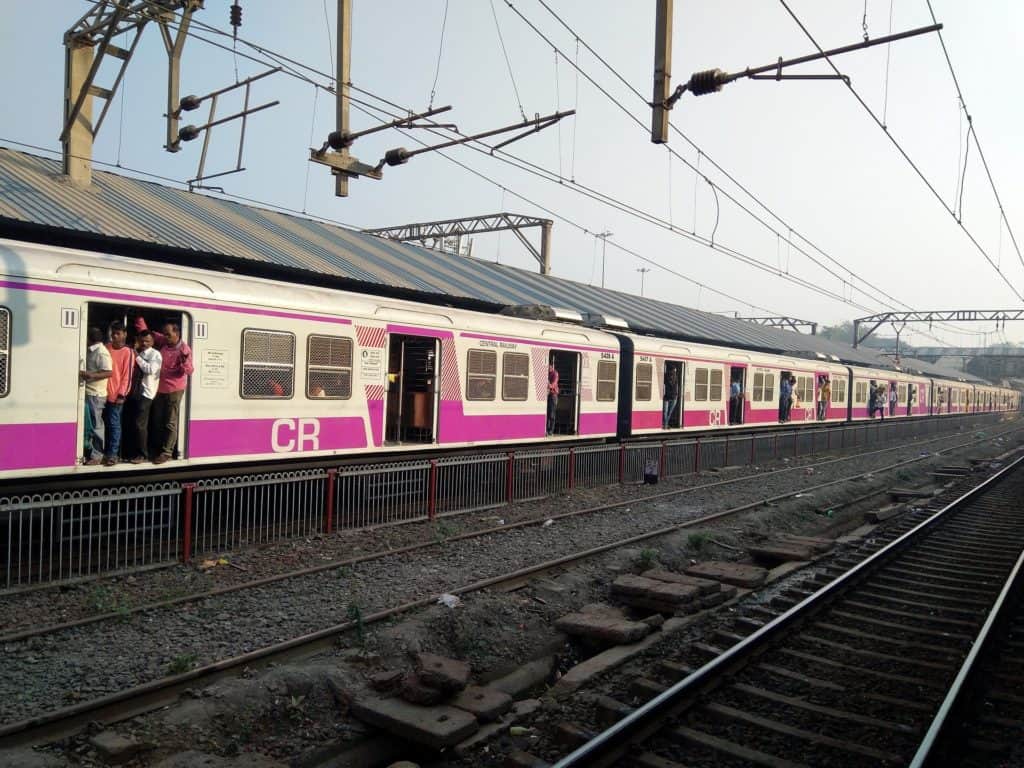Mumbaikars are demanding that the city, especially the suburban trains be opened up for all as numbers drop to 259 new cases as on 2 August.
Many delegations were taken to the government demanding more relaxations on commute, to save livlihoods and revitalize the economy.
On 2 August, the state government relaxed certain restrictions and extending working hours of all shops – essential and non-essential – till 10PM in Mumbai. They also allowed private offices and sporting facilities excluding swimming, to be fully open. Salons, gyms were open earlier but their timings have been extended.
However, the one demand the state has not given into is opening up of the suburban trains.
Dr Shashank Joshi, member of Maharashtra’s Covid task force that advises the state on drafting state Covid policies, had insisted that Mumbai should not be fully unlocked unless the city achieves about 70% of vaccination.
But that is a far cry. Until 30 July, only aout 17.35 lakh people had received both doses out of an adult population of 90 lakh.
This means less than 20% of the city is fully vaccinated.
Public pressure to open up local trains
Though trains continue to be accessible only for essential workers, a large number of citizens are openly defying rules to take the train for work.
With the railways refusing to provide tickets without a valid identity card, many travellers are forced to travel without tickets. The Central and Western Railway caught and penalised over three lakh commuters and collected fines over Rs 16 crores for travelling without tickets in the last four months from April to June,2021.
Since tickets are provided only for essential workers bearing valid identity cards, people are circumventing the procedures by showing fake identity cards. About 970 people have been caught between April and June with fake identity cards in WR. While the Central Railway caught 2.14 lakh people and recovered Rs 12.12 crores as fines, the Western Railway found 81,945 people travelling without tickets and collected Rs 4.02 crores penalty from them.
Read more: Mumbai needs more BEST buses
“People are desperate to travel to work”
Prem Sarose, a resident, was unemployed for a year and a half, thanks to the lockdown. Desperate for work, he traveled on the train without a ticket and was caught on the second day that he resumed work. “Are we criminals just because we are not government servants? The government should be happy that desperate people like us are not resorting to suicide,” he said in a video that went viral.
“It is the desperation of people to take to their jobs in Mumbai from far flung extended suburbs like Karjat and Kasara that is forcing people to resort to means like making fake IDs,” said Nandkumar Deshmukh, president of the Federation of Suburban Passengers Association. “How can people be forced to sit at home without offering any compensation package?” he asked.
With trains being inaccessible, buses have become overcrowded and rickshaws overcharge. “It is the poor who are the worst affected. How long can people stay at home and not provide for their families? Hunger could drive people to desperation and even to crime if this is allowed to continue,” said Deshmukh.
Poor most impacted
Suman Jha does glass design work and used to travel by trains earleir to reach his workplace. Now, he is either wasting long hours waiting for a bus spending more on other modes of transport. “While a train journey would help me reach my destination in say, 1.5 hours, now I end up spending almost 30-60 minutes just waiting for the bus. At times, when I am not able to get a bus for long, I have been forced to travel by cabs, since I also have to carry my tools,” said Jha.
The Bharatiya Janata Party has demanded a monthly COVID19 lockdown compensation package of Rs 5000 to cope up with the loss of livelihood for people like Jha. But he said government compensation is not enough, as his house rent Rs 12,000 per month.

What experts say
A Jule 2021 study by the Tata Institute of Fundamental Research concludes that that Mumbai was unlikely to see a strong third wave, unless a variant emerges that could substantially break through the immunity provided by vaccination, or population infected earlier loses immunity and is amenable to severe reinfections.
Prof Sandeep Juneja, who led the study, admitted that studying and predicting a wave is more difficult now as we are more aware of the possibility of potentially dangerous variants arising, but he said it is a good time for Mumbai to open up. He recommends a gradual opening up while keeping a sharp eye to spot new reinfection trends or variants to respond quickly. “Of course our key priority needs to be to vaccinate the population as quickly as possible,” he said.
What the state says
“The government’s first priority is to save the lives of people. Once that is achieved then we can focus on the economy,” said Aslam Sheikh, Guardian Minister, Mumbai City told a TV channel and assured that opening up will be a gradual process.
Mumbai Municipal Commissioner Iqbal Chahal has also recommended that train services not be open for all till the COVID19 numbers stabilise in its neighbouring districts of the Mumbai Metropolitan Region.
Suggestions are also made to allow trains only for the fully vaccinated but the state is yet to figure out how to implement that.
Incidentally, the state had earlier considered options like staggering of work hours and had even allowed access to all non-essential workforce during non-peak hours but subsequently the option was withdrawn.